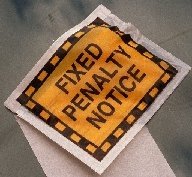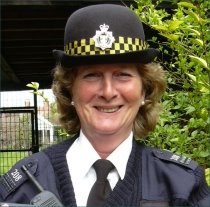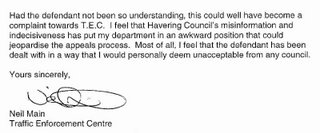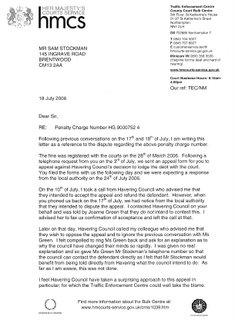Car drivers vote with their wheels over parking fines
ERIC DYMOCK
BANNING cars restores social justice, removes dangers, rights anomalies and provides Roundheads with a cosy glow. Global warming, traffic jams, the decline of the corner shop, child obesity and inner city poverty can all be solved by restrictions, limitations and banning orders.
Now, bless our souls, cars are responsible for our moral decline. Preaching from the pulpit, the Today programme or whatever platform he could command, the Bishop of London judges big cars sinful. God is apparently on the side of scientists who say cars are to blame for global warming, and He doesn't believe those who say global warming is like global cooling, and one will most surely follow the other.
Cars are certainly sinful in Aberdeen, which is restricting them to 20mph - not that you can go much faster down Union Street, except perhaps in the dead of night, in which case 20mph could land you with a charge of kerb-crawling.
It is sinful to take children to school in cars. Watch out for Scottish Executive experiments in your area, which will collapse the moment the first child is abducted, tumbles off a bicycle or falls under a lorry because mum was forbidden to drive to the school gates. Proper school buses are the only solution.
Cars are sinful in Edinburgh unless all the seats are occupied. The council would like a no-overtaking rule on single-occupancy cars on the ring road. It fairly makes a case for picking up hitchhikers and speeding past in the fast lane. Transport commissioner Andrew Burns says multiple-occupancy lanes are used in America, forgetting the six-lane freeways where such a rule just might be applicable. Not much chance on our own dear two-lane Edinburgh South-Semi-Circular, which Councillor Burns would reduce to a crawl in retaliation for rejecting his referendum on congestion charging.
Cars are sinful to the Commission for Integrated Transport. It would really like to be the Commission for Social Engineering, though it has now tacitly agreed what inhabitants of the real world have been telling it for years: parking restrictions and badly thought-out traffic schemes kill off city centres.
People want cars for shopping. Cars allow them to stay out of the rain and keep dry, or stay out of the sun and keep cool.
Alas, Oliver Cromwell's heirs disapprove. Fines and traffic wardens have scared them away. Old people want to park near shops, and even young people laden with a week's comestibles don't want to carry them for miles with a meter ticking down to fine-time, so they go out of town. They have voted with their wheels in Edinburgh, Glasgow, Birmingham, London and all over Europe.
Accordingly, the Commission for Social Engineering now wants to abolish free parking in out-of-town centres. "Given the growing problem of congestion and concerns about the environment, [driving to out-of-town centres] is unsustainable," it thunders. "Nor does the out-of-town retail model help engender social inclusion and accessibility for the wider community."
Get real. The "wider community" goes to shopping centres by the hundreds of thousands because the Commission, and its satraps like Andrew Burns, have expelled it from town centres.
"The Commission recognises that for some shopping trips the car is the most convenient option. But this level of car use is not sustainable."
Helen Holland, the member who led its enquiry into retailing, is long on jargon but short on realism. Dirigistes and social engineers hate cars so much that any excuse can be used to attack them. "We want to see local authorities... taking the right decisions" - by which Ms Holland means "our" decisions.
Even the RAC Foundation, not invariably on the side of the honest motorist, thinks the report underestimates the importance of parking and is unrealistic in recommending instead what it calls "quality public transport - particularly park & ride - as a solution for rural shoppers with no alternative to using the car".
An RAC Foundation survey showed how parking determines where we live, work, shop and play. A third of drivers have given up and gone home due to lack of parking. About the same number have cruised for 20 minutes looking for a space, and 45% feel unsafe in car parks at night.
Yet here is a job for the Commission for Integrated Transport which would make a change from recommending restrictions or discouraging cars. Get out into the country, to the Highlands and Islands, where transport is anything but integrated, and where heavily subsidised Caledonian MacBrayne doesn't fill the watery gaps out of office hours.
Integrating ferries with roads would be a good use of the Commission's time and resources. For example, how disintegrated it is for the NHS to charter medevac helicopters costing goodness knows how much per hour to inshore islands like Bute while £10m car ferries snore the night away at Rothesay pier.
No ferry is available or willing to transport an ambulance, or anything else for that matter, between 8pm and 6.30am. Be prepared for CalMac to claim an obscure or, as it has done before, a "secret" maritime regulation that prevents it sailing at unsocial hours. Roads do not close down by night, yet large viable communities are cut off for 10 hours out of 24.
They do things better in Scandinavia, where subsidised ferries are regarded as extensions of the highway network, and "sustainable" means more than a campaigner's jargon.





